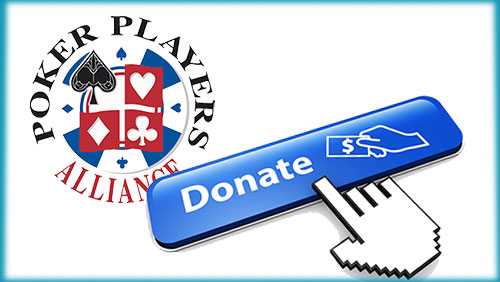After John Pappas announced his resignation as the president of the Poker Players Alliance (PPA), effective at the end of this month, the group’s vice president, Rich Muny, stepped in to fill his shoes. His first order of business has been to find money from any source possible, and recently penned an email to PPA members, as well as th ose that are on the group’s mailing list, asking them to step up and help them out. He pointed out in the email that the group is hemorrhaging, and desperately needs an infusion of cash.
ose that are on the group’s mailing list, asking them to step up and help them out. He pointed out in the email that the group is hemorrhaging, and desperately needs an infusion of cash.
Pappas left primarily for the same reason that prompted Muny’s email. There has been a substantial decrease in the group’s working capital, making it more and more difficult for Pappas to be effective in promoting poker-related cause. The group has been extensively fundamental in helping to sway policy at both the state and the federal level to advance poker in the country.
Muny indicated that the PPA is facing closure, in the midst of one of the most crucial years for poker. If the group doesn’t earn $25,000 by the end of March, it will have no choice but to shutter its operations. The money will go towards operational expenses of its communications and advocacy operations. The PPA conducts grass-roots efforts to increase poker’s reputation and help influence policy to protect poker players. It was able to force the return of $120 million that was illegally garnered from players as a result of Black Friday, and has been crucial in four states that have legalized Internet poker—Nevada, New Jersey, Delaware, and Pennsylvania.
The PPA has always been a volunteer network of people working toward the cause of promoting safe poker activities in the United States. It was founded in 2005 and currently has over 1 million members. It has always relied on donations to operate, but interest waned somewhat in 2006 after the passage of the Unlawful Internet Gaming Enforcement Act (UIGEA), which the PPA unsuccessfully tried to block. The U.S. Supreme Court is currently addressing the constitutionality of the UIGEA, and its anticipated reversal could come as early as March of this year.